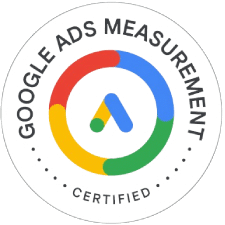What is Website Usability?

Website usability means how easy it is for visitors to use a website. The Kiss (Keep It Simple, Stupid) principle is a new standard for designing a new website. The website navigation should be very easy for visitors to interact with.
What do we offer for Web Usability?
Search Engine Projects (SEP) will follow the website usability methodology to build and test all the websites. We collect and analyze visitor feedback. We monitor visitors’ behavior from when they land on a page until they leave a website.
Our website usability techniques allow our clients to improve their sales and clients’ intentions with their websites. We provide the following website usability services:
- Website Usability Testing
- Website Usability Audits
- User Research
- Website Usability Documentation
- Usability Testing with Disabled Users
- Accessibility Audit
- Accessibility Training
- Software Evaluation
- Information Architecture
- Website Strategy Development
- Website Competitor Assessments
- Website Usability Training and Mentoring
Search Engine Projects (SEP) will help your websites reach the correct positions quickly and affordably. Please contact 888-669-6961 to talk to one of our staff members about website usability.
Why Website Usability Is website usability important?
In today’s digital age, having a website for your business or personal brand is a must. However, it’s not enough to have a website; it must be designed with usability. Website usability refers to how easily visitors can navigate and interact with a website to achieve their goals. In this article, we’ll explore why website usability is important and how it can benefit your online presence.
Firstly, website usability can significantly impact user experience. A user-friendly website is accessible to navigate. Visitors who have had a frustrating experience on your website will likely enhance the overall experience for your visitors. When visitors have a positive experience on your website, they’re more likely to stay longer, engage with your content, and return in the future. On the other hand, if visitors have a frustrating experience on your website, they’re likely to leave quickly and may not return.
Additionally, website usability can improve website conversions. If visitors can easily find what they’re looking for and complete desired actions, such as filling out a form or making a purchase, they’re more likely to convert into customers. A website that is difficult to use or confusing may cause visitors to abandon their goals and leave without completing a desired action.
Moreover, website usability can also impact search engine optimization (SEO). Search engines, like Google, consider usability a factor when ranking websites in search results. Websites that are user-friendly and provide logic for visitors are more likely to rank higher in search results than websites with poor usability.
To ensure your website is user-friendly, it’s essential to consider the following aspects of website usability:
- Navigation: A straightforward and easy-to-use navigation menu is crucial for visitors to find the information they’re looking for. The navigation menu should be prominently displayed on every page and organized logically.
- Page Speed: Slow-loading pages can be frustrating for visitors and may cause them to leave your website strain that your website loads quickly by optimizing images, using caching, and minimizing code.
- Mobile Responsiveness: With most internet traffic coming from mobile devices, it’s essential to have a website optimized for mobile and adapters. Your website should be responsive, meaning it adapts to different screen sizes and resolutions.
- Content Clarity: Visitors should be able to optimize search engines. Use clear and concise language, avoid jargon, and break up content into easily digestible sections.
- Call to Actions: Clearly defined call to action, such as buttons or links, can help guide visitors towards desired actions and improve website conversions.
In conclusion, website usability is crucial for providing a positive user experience and improving website conversions. By considering the aspects of website usability listed above, you can create a user-friendly website that visitors will enjoy using and that will help you achieve your online goals.
Website Usability Best Practice:
Any website user will know that website usability is critical when visiting a website. As a website owner, it is your prerogative to make your website have a high degree of website usability so that your visitors can enjoy the page as much as you want them to. People are more likely to revisit a website that has a high degree of website usability, and they are more likely to be able to find out the information that they need to know. For most websites, increasing usability ensures that every section is clearly labeled so that users find it easy to see and do. Here are some tips on best practices for increasing website usability:
Label things clearly:
Ensure that your website is easy to navigate by ensuring that every section is clearly labeled so that users can access all the essential information quickly. Increasing clarity increases website usability. Labeling sections concisely with headings such as “prices” or “contact us” will allow users to find out information quickly. When people visit a new website, they do not want to spend a long time hunting for information and exploring a website via trial and error, which will most likely frustrate them.
Keep things short and sweet:
Please keep all the information you need to impart as clearly and concisely as possible. Do not use overly technical language if it is not required because this can exclude people who are not experts in the field. If you must write a lot of content, try to break it into many shorter paragraphs and include subheadings so that people can read only some of the information.
Choose the right background:
Although bright colors are eye-catching on a website, you must be careful that the colors do not overshadow the content. Using specific colors for the background of a web page can make it very hard to read the text on the web page. If your visitors cannot read the text on your web page easily, they will be less likely to take on board the information you are trying to tell them. Visitors who get eye strain from a web page are unlikely to be repeat site visitors.
Try your web page out on different browsers:

Many different web browsers are in use worldwide right now, as well as many other devices with web connectivity. Even though your web page has a high degree of website usability on one web browser, it will still need to have the same usability on every other web browser. Once you think that your website has a high degree of usability, make sure that you take the time to check that it works properly on all of the other main web browsers, or you could end up excluding a big group of people from your website.
Website Usability Testing: Ensuring a Positive User Experience
In today’s digital age, having a website that is easy to use and navigate is essential for businesses to attract and retain customers. Web usability refers to the ease of use and efficiency of a website’s user interface, and it plays a crucial role in determining a site’s success. Poor usability can frustrate site visitors, resulting in lost business opportunities.
Usability testing is a process used to evaluate a website’s usability, and it involves testing the site’s features with real users to identify usability problems. This process helps designers make informed design decisions, identify user needs, and provide a seamless experience to site visitors.
Good website usability is vital because it directly impacts user satisfaction. A user-friendly site makes it easy for users to achieve their goals and makes them feel comfortable and confident while using the site. Usability guidelines are available to help web designers improve their sites’ usability, but usability tests with real users are essential to ensure that a site meets its target audience’s needs.
Usability testing involves creating tasks for users to complete and observing their behavior to identify areas of the site that cause problems. Usability tests help to identify issues such as broken links, confusing navigation, and unclear instructions that can affect the user experience. Usability testing should be ongoing as web design constantly evolves and new technologies and trends emerge.
When conducting usability tests, it’s crucial to consider the target audience’s specific needs. For instance, a site designed for inexperienced users will have different usability requirements than one designed for smartphone users. The site’s search function is also essential when evaluating usability, as it helps users find information quickly.
An essential aspect of usability is making websites usable across different devices and screen sizes. A mobile site or a desktop version should provide a seamless experience to users, and the site’s interface design should adapt to different screen sizes. For instance, a brand offering sportswear such as indoor sports shoes and new running shoes should consider making their site usable on tablets and desktop screens.
Another critical usability aspect is ensuring the site is accessible to users with disabilities. Screen readers, for instance, can help users with visual impairments navigate the site, and designers should consider including alt text for images and videos to ensure that users with disabilities can understand the content.
In conclusion, website usability is essential for businesses to succeed in today’s digital age. Website usability testing with real users is suitable for identifying usability problems and improving the user experience. A satisfying experience for users is crucial, and designers should aim to create a clean presentation, a clear hierarchy, and a seamless experience across different devices. With ongoing good website usability testing, businesses can ensure that their sites remain user-friendly and meet the needs of their customers.
You can increase your web usability by simply considering the steps above, but if you need expert help, talking to a website usability consultant can be worthwhile. Search Engine Projects (SEP) will help your websites reach the correct positions quickly and affordably. Please contact 888-669-6961 to talk to one of our staff members about website usability testing.













